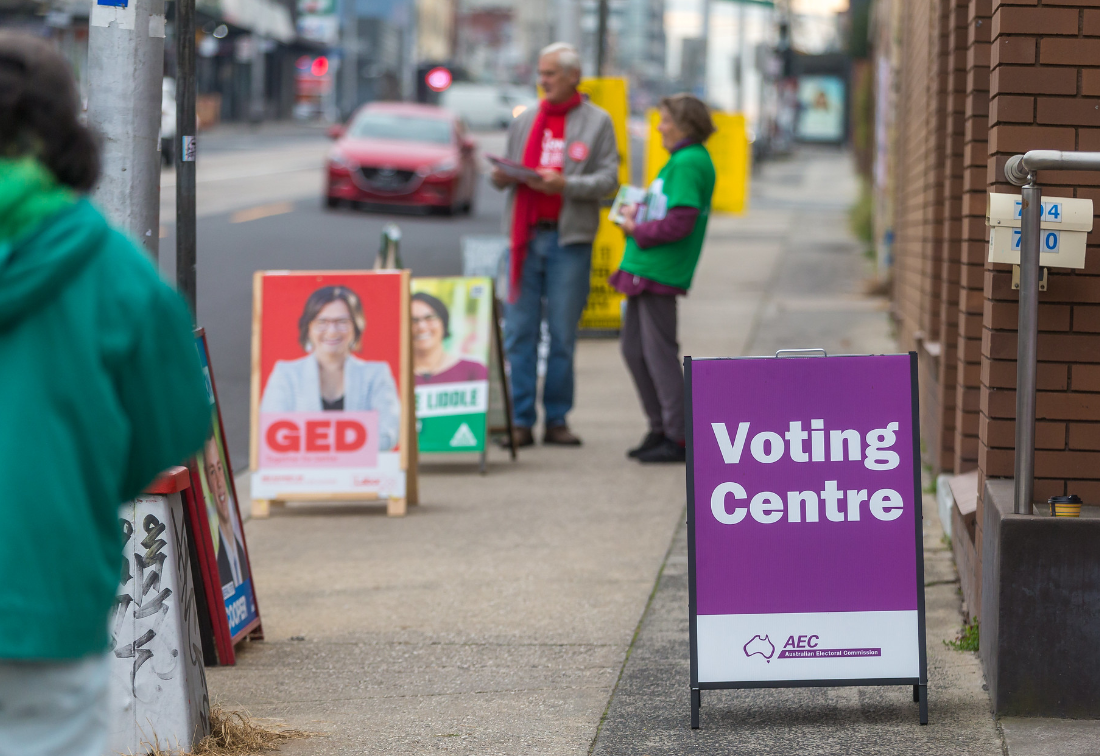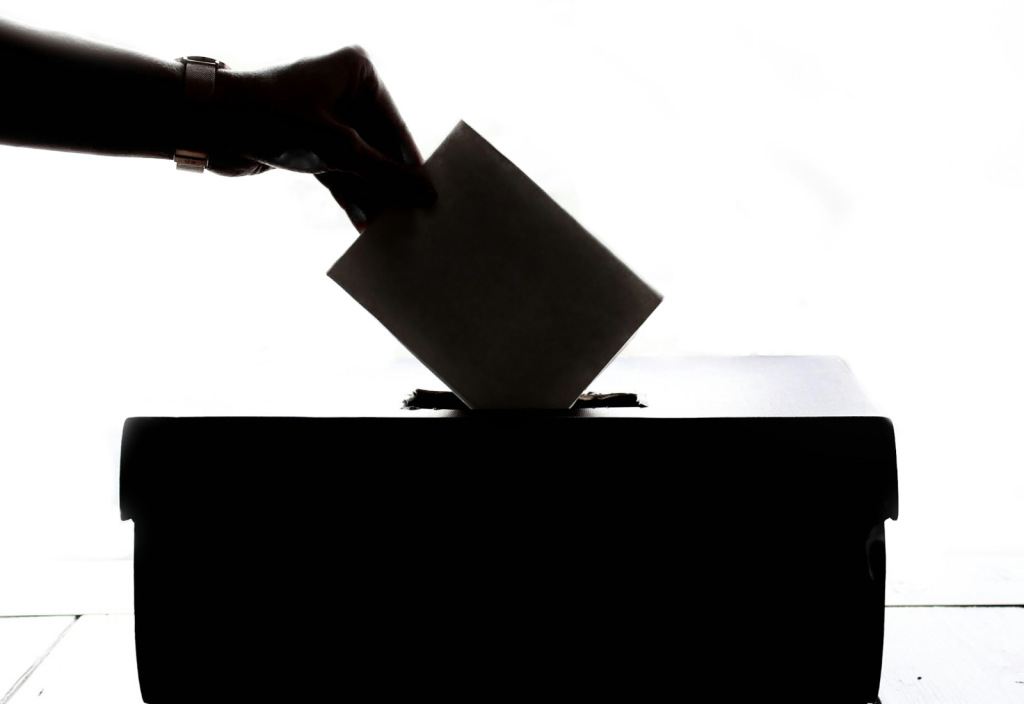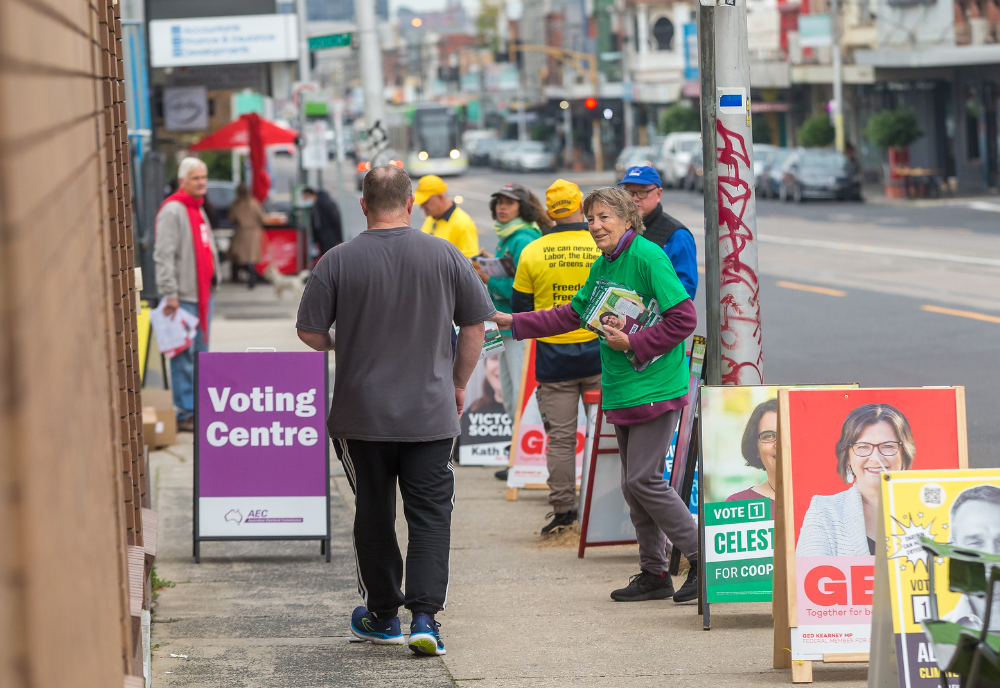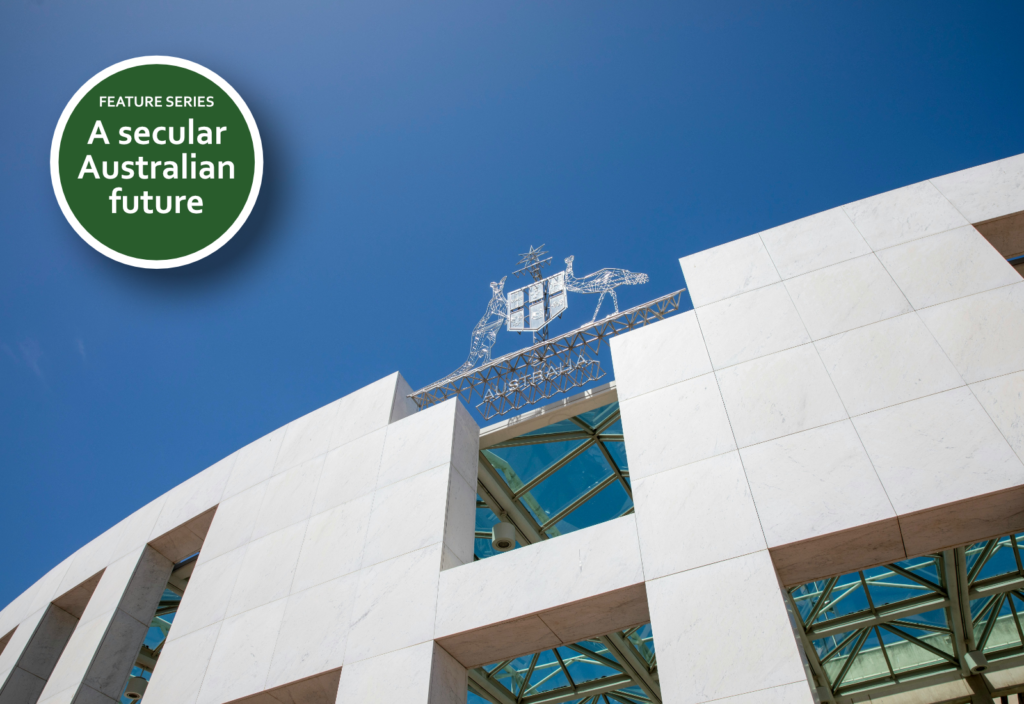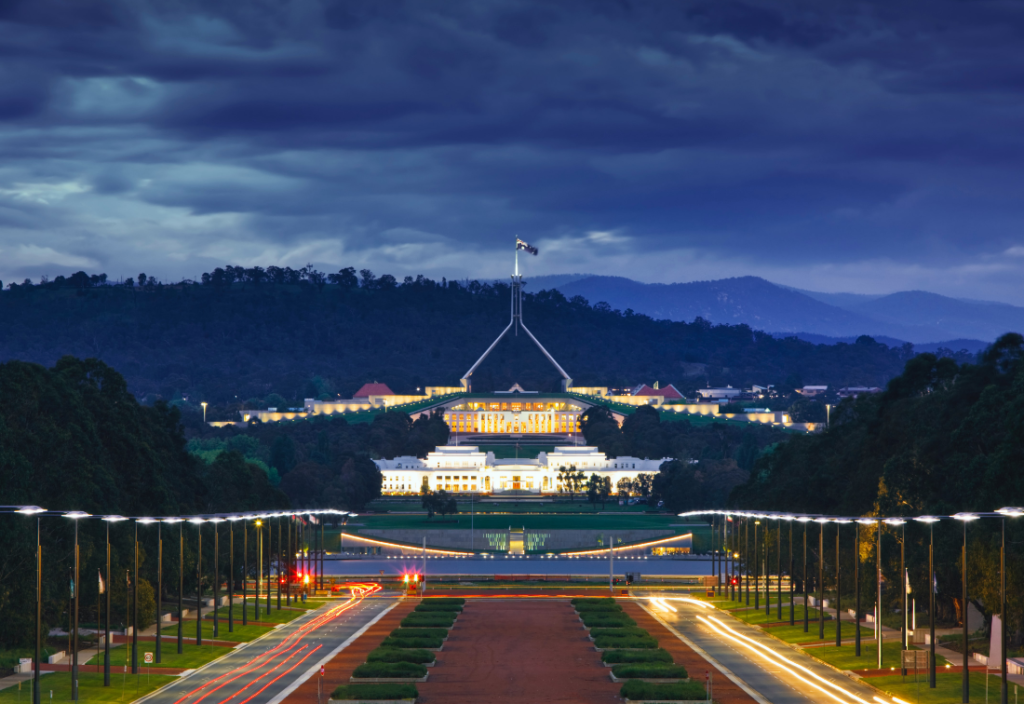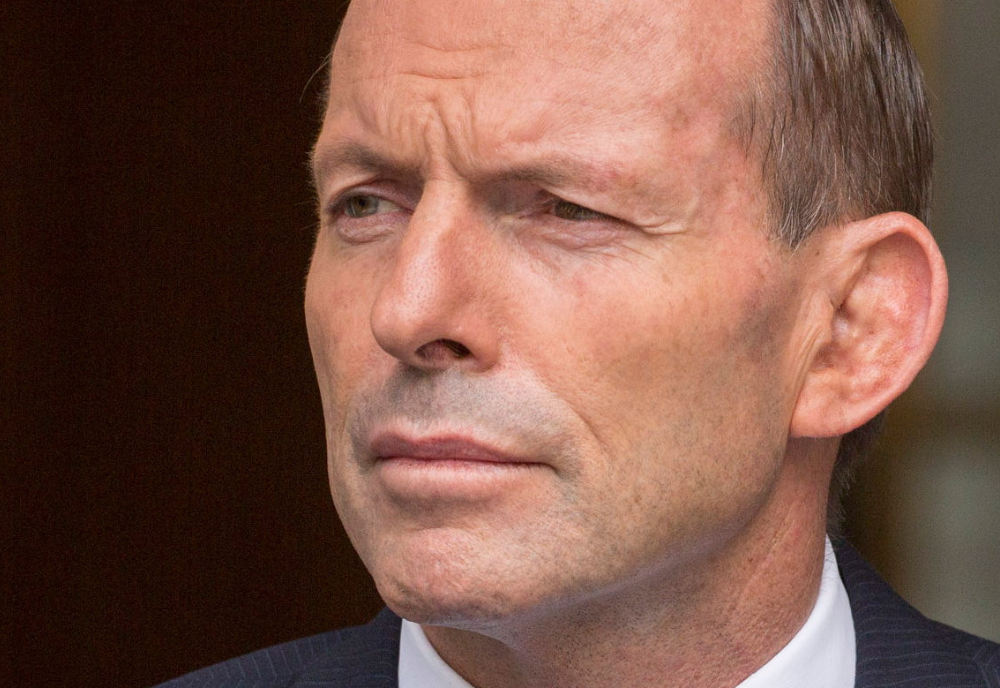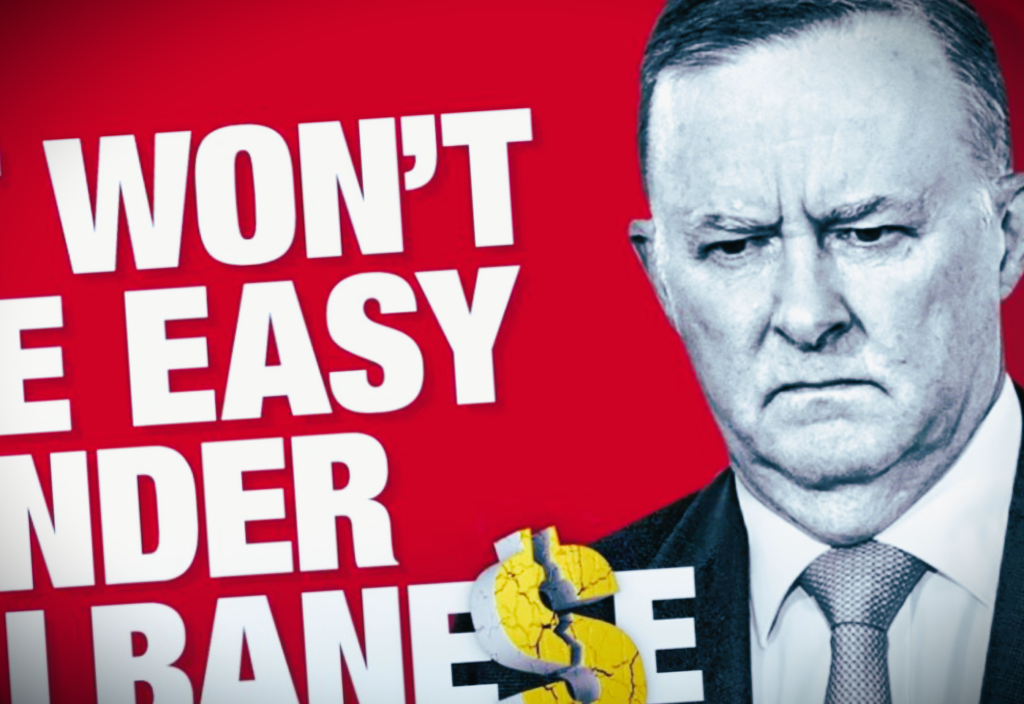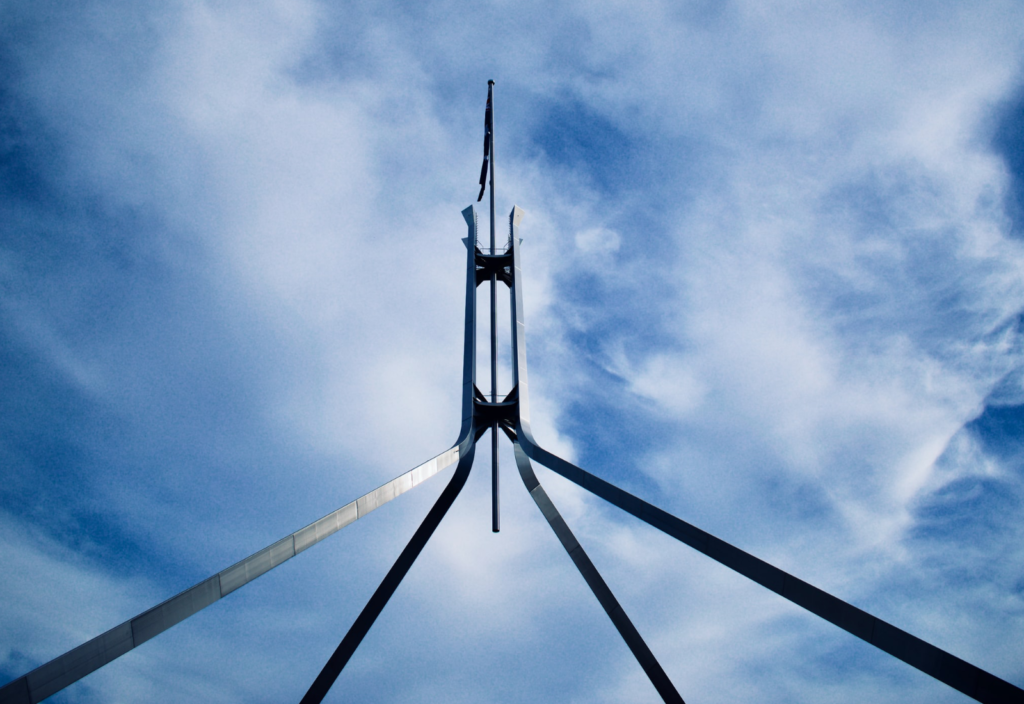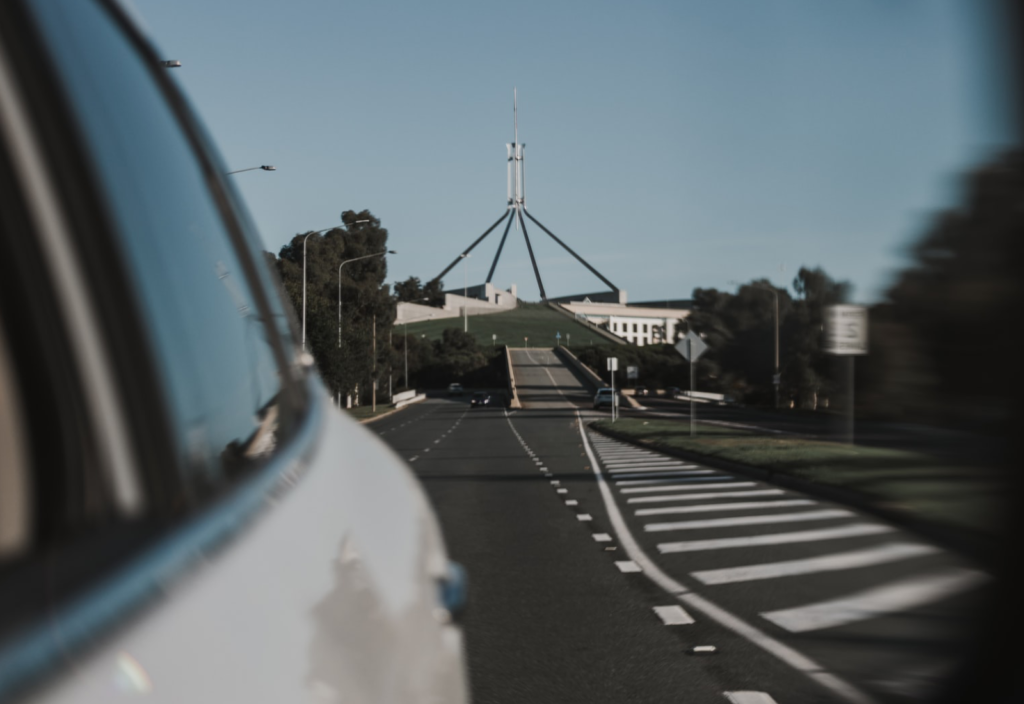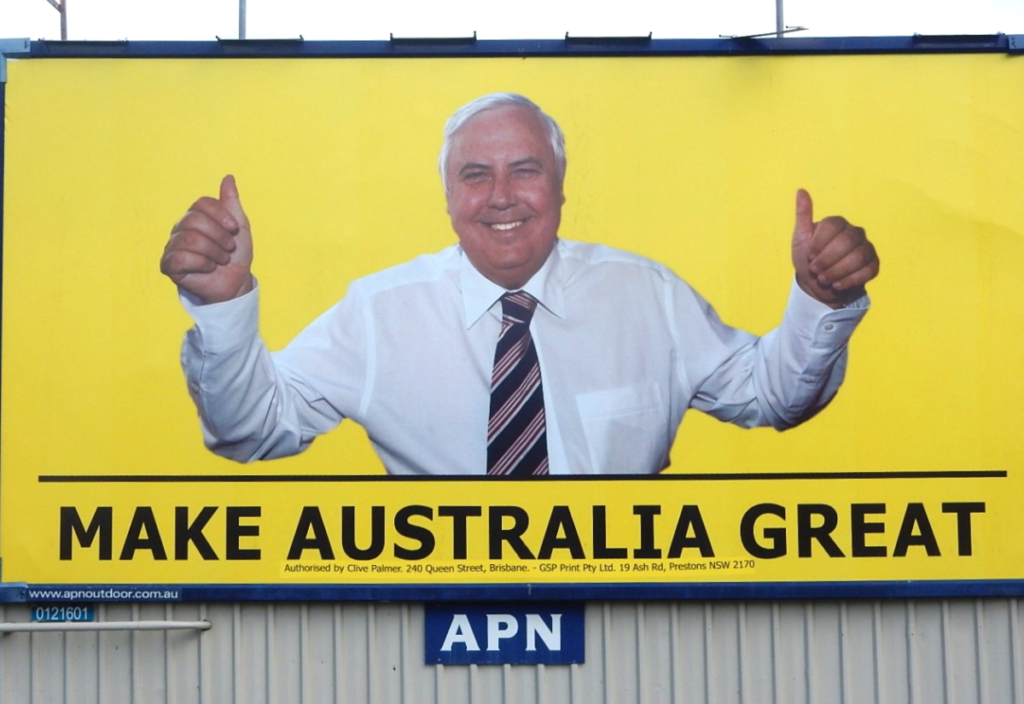It’s perfectly legal to lie in political advertising – and it shouldn’t be!
During the 2022 federal election campaign, a fringe political group called Advance Australia found itself in hot water with the Australian Electoral Commission (AEC) over posters suggesting that Labor was aligned with the Chinese Communist Party (CCP) and that the CCP wanted Australian voters to tick the Labor box on ballot papers.
Advance Australia wasn’t in any trouble over the outrageous lie about CCP support for Labor. Rather, they were in trouble because they gave the impression that ballot papers are filled in with ticks. The correct method of filling in the ballot paper is to number the candidates in order of preference.
At the federal level, it is unlawful to mislead people about how to fill in ballot papers. But it is perfectly legal to tell lies about anything else political.
With no requirement for truthfulness in the political advertisements that they put out, political players continue to be held to a lower standard than businesses when it comes to advertising laws. The time has come for change.
The prohibition on misleading or deceptive advertising that exists in the business world needs to be extended to apply to political advertisements, including online advertisements, at the federal level and in all states and territories.
Existing laws regarding truth in political advertising
In Australia, we do have examples of such rules in operation – and they seem to make a difference. South Australia has banned misleading political advertising for more than three decades and, in recent years, similar laws have been introduced in the Australian Capital Territory.
The South Australian law allows the state electoral commissioner to request that misleading advertisements be taken down and a retraction published. The South Australian law also allows the courts to order that misleading advertisements be taken down and a retraction published. The courts can also impose fines, and those fines will be harsher if politicians and parties have ignored a request from the electoral commissioner.
The South Australian electoral commissioner told a Victorian parliamentary inquiry in 2021 that the South Australian law “in a broad sense does prevent misleading advertising heavily influencing elections here in South Australia”. The commissioner also said that the major political parties are usually quick to comply with requests to retract misleading advertising.
At the federal level, all we have is a narrow provision in the Commonwealth Electoral Act 1918 making it a criminal offence to mislead or deceive a voter in respect of the mechanics of casting a vote – such as how to fill in the ballot paper.
In 2021, the Victorian parliament’s Electoral Matters Committee released a report about the impact of social media on elections and electoral administration. Among other things, the committee recommended that Victoria introduce truth in political advertising laws.
The government’s official response to the committee’s recommendations indicated that the Victorian government “supports in principle” the introduction of truth in political advertising laws. As yet, no legislation has been introduced into the Victorian parliament.
A possible model for truth in political advertising laws
In my submission to the Victorian inquiry, I recommended that the parliament introduce a prohibition on misleading or deceptive political advertising. The key features of my proposal could also be considered if the new federal parliament decides to consider truth in political advertising laws.
Under my proposal to the Victorian parliamentary committee, a person must not authorise or permit the publication of electoral matter which contains a statement purporting to be a statement of fact when that statement is “misleading or deceptive or is likely to mislead or deceive”.
To contravene this law, a person would have to have played some role in determining the content of the electoral matter and could reasonably be expected to have known that the statement was misleading or deceptive, or was likely to mislead or deceive. So, for example, a contractor hired to install a billboard would not be liable but the politicians and campaign managers who designed the billboard would be.
Importantly, the proposed provision would have a limited and clear scope of operation. The prohibition on misleading or deceptive political advertising would apply only to material already required by law to carry an “authorised by…” statement.
The concept of “misleading or deceptive or likely to mislead or deceive” is well developed and well understood. It has been operating in Australian law for decades in the commercial arena. The concept is not about ‘true’ or ‘false’. For example, opinions and puffery are not misleading or deceptive.
Arguments that such advertising standards cannot reasonably be applied to electoral matter required to carry “authorised by…” statements are arguments that are equally applicable to commercial advertising. Such arguments are not accepted by governments or the community in the commercial advertising context.
Under the proposal, the prohibition on permitting the publication of misleading or deceptive political advertising would apply to publishers, including the likes of Facebook and Twitter. But it would only do so if they could reasonably have been expected to know that a political advertisement was misleading or deceptive.
In the modern era, it can sometimes be difficult to know the author of electoral advertisements in the online realm. But when a publisher such as Facebook becomes aware that ‘fake news’ advertisements are on their platforms, it should face civil consequences for failing to remove an advertisement once it becomes aware of the problem.
Another feature of the proposal is that civil penalties, rather than criminal penalties, would apply – as they do for current misleading or deceptive commercial advertising.
A tricky question is which body should be responsible for enforcing political deceptive and misleading advertising laws. There are two key options: electoral commissions or the Australian Competition and Consumer Commission and its state consumer affairs equivalents.
Making the electoral commission responsible for enforcing federal political deceptive and misleading advertising laws would mirror what happens in South Australia and the ACT. However, there may be reluctance on the part of the other electoral commissions to take on such a task.
In 2020, I proposed a version of the prohibition on misleading or deceptive political advertising during a presentation at an Electoral Regulation Research Network event, attended by academics and electoral commission officers. At that event, officers from various Australian electoral commissions expressed a reluctance to be involved in enforcing any such law out of fear that electoral commissions lack the necessary expertise and resources and might be seen to be intervening in political matters.
The second option would be to task the ACCC and its state consumer affairs equivalents with enforcing law on political deceptive and misleading advertising. After all, the ACCC is already responsible for enforcing commercial deceptive and misleading advertising laws.
It’s time to stop the lies
The principal aim of introducing truth in political advertising laws is not about seeing politicians and lobby groups subject to regulatory enforcement action or seeing them pay fines. The aim is to bring about cultural change in the way politics happens in Australia – a change to robust but honest debate so the Australian people can make well-informed judgements about who should represent them.
This article draws on the author’s submission to the Victorian Parliament’s Electoral Matters Committee inquiry.
If you wish to republish this original article, please attribute to Rationale. Click here to find out more about republishing under Creative Commons.
Photo by AEC Images (Flickr CC)

